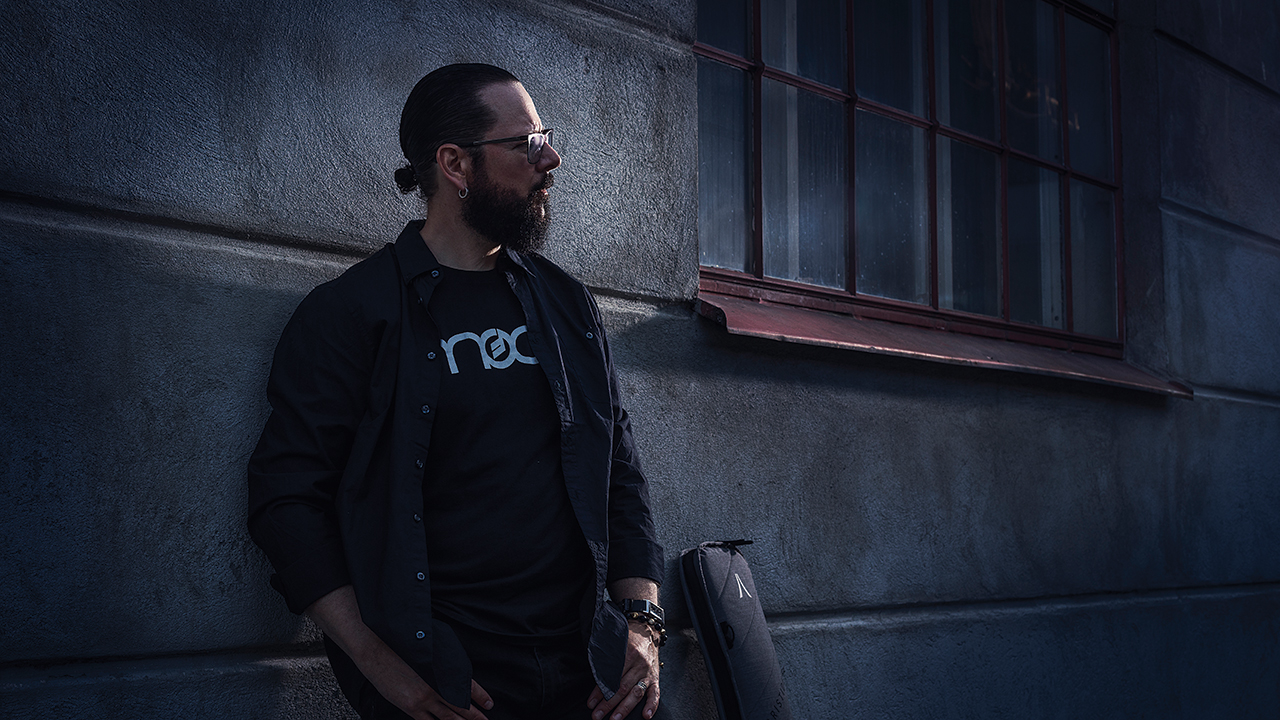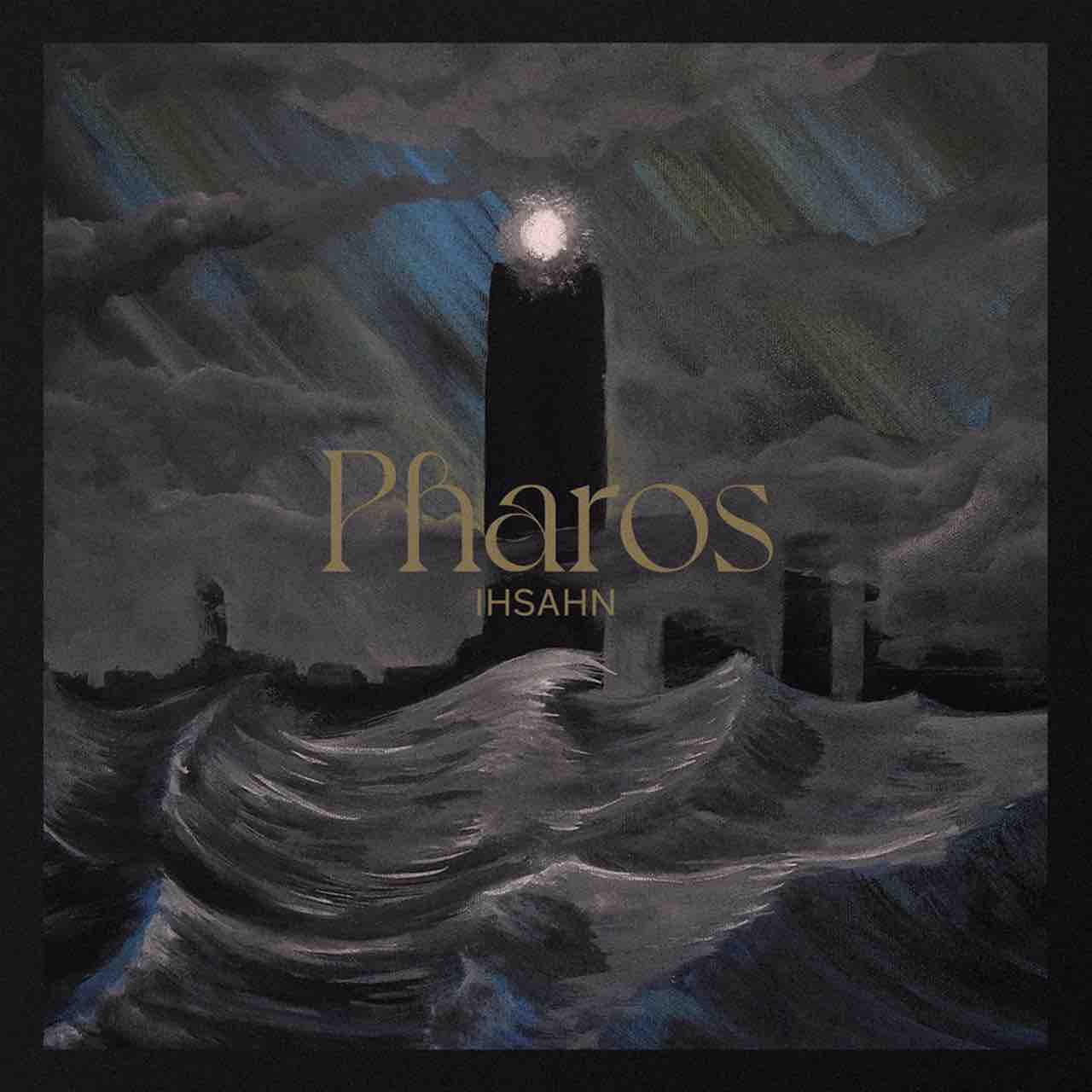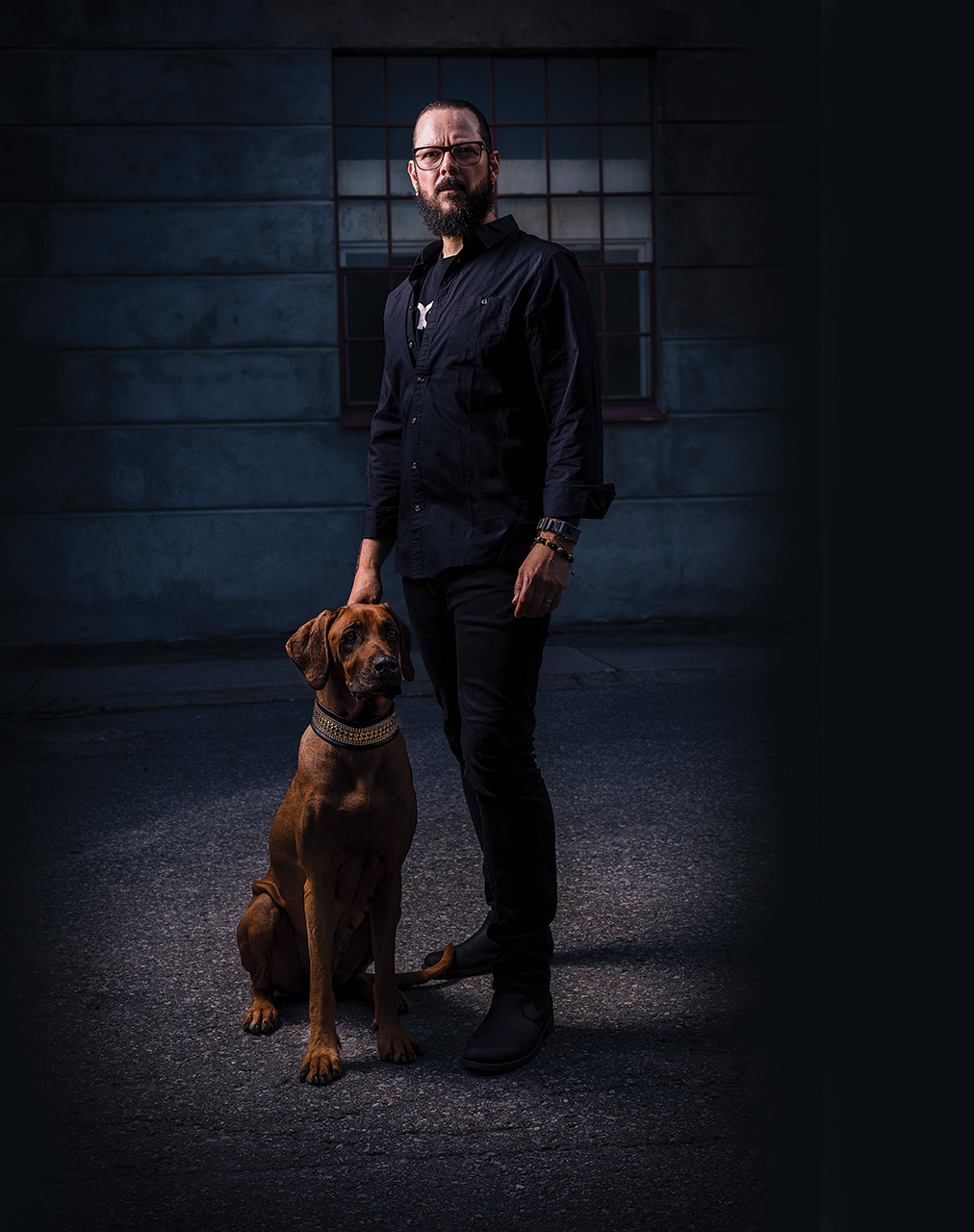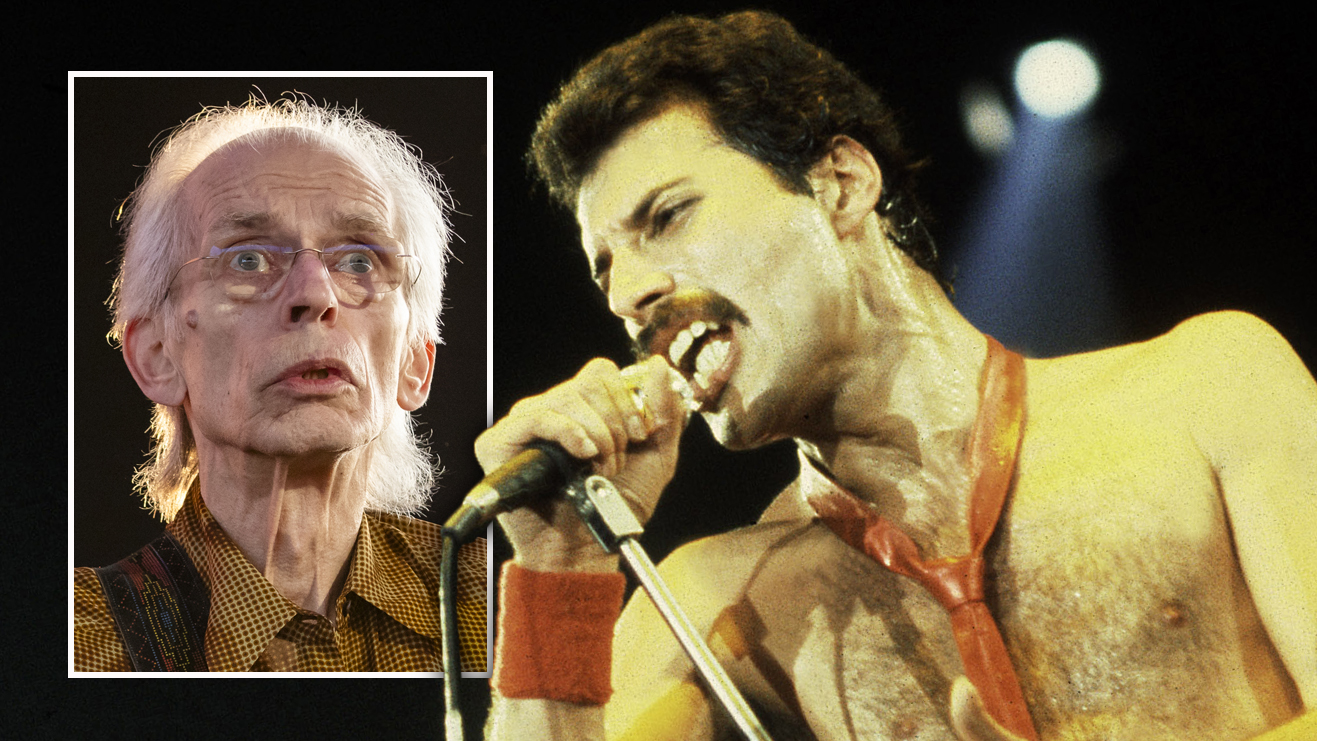How Ihsahn ended up covering A-ha and Portishead on his Pharos EP
On Pharos, the follow-up to Ihahn's Telemark EP, the Norwegian prog metaller displayed a softer experimental side

Select the newsletters you’d like to receive. Then, add your email to sign up.
You are now subscribed
Your newsletter sign-up was successful
Want to add more newsletters?

Every Friday
Louder
Louder’s weekly newsletter is jam-packed with the team’s personal highlights from the last seven days, including features, breaking news, reviews and tons of juicy exclusives from the world of alternative music.

Every Friday
Classic Rock
The Classic Rock newsletter is an essential read for the discerning rock fan. Every week we bring you the news, reviews and the very best features and interviews from our extensive archive. Written by rock fans for rock fans.

Every Friday
Metal Hammer
For the last four decades Metal Hammer has been the world’s greatest metal magazine. Created by metalheads for metalheads, ‘Hammer takes you behind the scenes, closer to the action, and nearer to the bands that you love the most.

Every Friday
Prog
The Prog newsletter brings you the very best of Prog Magazine and our website, every Friday. We'll deliver you the very latest news from the Prog universe, informative features and archive material from Prog’s impressive vault.
In a year where even the best-laid plans have been left in tatters, Ihsahn’s double helping of five-track EPs has felt like a godsend. The two complementary releases – starting with the nostalgic black metal affair of February’s Telemark and concluding with the contemporary, progressively propelled Pharos in September – have helped break up a year amass with reasons not to be cheerful. Yet, even as the Norwegian multi-instrumentalist’s own carefully crafted plans are dashed by the pandemic, the unforeseen climate provides a rather fitting setting for this diverse new material. With the doors to venues shut, music fans are now looking to our record collections for entertainment and escapism, and releasing 10 songs across eight months has given us both of those twofold.
“It’s all a matter of consequence,” a studious Ihsahn tells Prog. “Especially during the context of this pandemic, it’s worked quite well to keep the interest spread out. Originally, the whole idea behind them was very much linked to the live format. I was meant to be premiering the Telemark show over Easter; we had new backdrops and a set built around the concept of that EP. I was going to be playing the most extreme songs in my catalogue. Then, after the release of Pharos, I was going to tour a setlist containing my mellower and more progressive material. They were going to be two very separate live shows as part of a much bigger picture. Now they are just two EPs.”
With each EP isolating and exploring in vivid detail the polar opposites of Ihsahn’s complex musical spectrum, both releases have provided a stark insight into who he is. As a musician who first came to public attention in the Scandinavian black metal scene, he’s since evolved into one of the smartest multi-dimensional songwriters in today’s progressive scene and, on Pharos especially, he really shines. Here, Ihsahn sounds singularly focused on looking forward, and although he’s proud of his musical heritage, he’s clearly desperate to delve further into the unknown.

“For me, the Telemark and Pharos EPs represent the two extremes of what I try to do as part of my wider sound in their purest forms. Telemark was about going back to my roots and focusing on the black metal extreme of what I do and on my homeland. With Pharos, I felt it had to be the counterpart to that. It needed to be conceptually the exact opposite, both musically and geographically. So there’s an element of travel and adventure to it. I wanted something that was a bit more unusual, something that stepped away from what people have come to know me for, with only clean vocals and much more open arrangements and it was a challenge I found very exciting.”
Pharos, which, like its predecessor, comprises three original songs and two covers, still sounds like Ihsahn. Yet, there’s a freshness that cuts through it and deep into the listener’s bones like an icy winter breeze. Although sonically different in its ideology and defiance in stepping away from previous releases, there’s a similarity between Ihsahn’s development and that of Steven Wilson’s. The young musician who crafted Porcupine Tree’s Anesthetize is in stark contrast to the man who wrote the song Permanating. That musical diversity and that intrinsic desire for creation over repetition should be celebrated, especially when it’s pulled off with as much aplomb as Ihsahn on Pharos.
“I would say it’s of a much more questioning perspective,” Ihsahn continues, pensively. “It is about having adventurousness. Take the cover, for example, which has [Egypt’s] Lighthouse of Alexandria on it. It opens itself to a more philosophical perspective around the idea of having certain goals in life and a purpose, represented by this beacon. It’s about striving for those goals towards the beacon, but it also represents the idea that you can be a beacon for someone else, too. It also interests me that, like with a lighthouse, you have the power to turn your light off and be in control of who you do and do not invite to your shore. As a personal metaphor, it’s about choices and exposing yourselves to a larger world, for better or for worse.”

Such exposure, plunging into alien depths, expands onto the choice of cover songs on Pharos. When they were announced, Portishead’s Roads and A-ha’s Manhattan Skyline may have raised some eyebrows, but the reality makes perfect sense. Ihsahn’s personality punctuates two already extremely characterful songs.
Sign up below to get the latest from Prog, plus exclusive special offers, direct to your inbox!
“I wanted to do two covers that influenced the writing of the original songs, so I picked the extremes of what I love about pop music. I love the electronic and loopy elements of Portishead, where the music is so fragile and has so few elements. It’s whispery and soft and there’s an extreme tension to that song. I don’t think there’s another band that has mastered that sound quite as well.
“And on the other hand, that extreme fragility and tension of music is contrasted with A-ha. You know, I had A-ha posters on my bedroom wall when I was very young, before I got into Twisted Sister and Iron Maiden. I’ve always admired them. They were pioneers. They were the first Norwegian band to make a mark on the international scene and their musical craftsmanship, not just on that song but in general, is very intelligent. They write quite unusual songs that still have really grand, top-of-the-mountain choruses. Both of those songs were very educational to me. I love the way they feel and the way they grow. I spent a lot of time looking at those songs to learn how they created those feelings and try to learn for myself.”
The A-ha cover also welcomes the return of his brother-in-law and Leprous frontman, Einar Solberg.
“I was never going to try and sing that song myself,” says Ihsahn with a laugh. “The only vocalist I know who could do that song well is Einar. We’ve been collaborating with each other for so long now and having him cover and work on the song was a really nice experience. It didn’t take him long either, which tells you just how talented he is.
“I’ve been so fortunate to do this for such a long time,” he adds, “but one challenge I’ve always had is keeping myself enthusiastic. If I’ve learnt anything from all these years writing it’s that if I’m not excited by something, I can’t write music that expects excitement from the listener. So I’ve found it beneficial to have these greater conceptual ideas to challenge myself and keep the songwriting process exciting. I put myself in situations where I’m just as hyped about the music as I want the listener to be and with Pharos that has certainly been the case. To challenge myself and step out of my comfort zone like this has been extremely rewarding.
“Sometimes people seem to think I go in different directions to provoke the fans but that really isn’t the case. It’s for purely selfish and sadistic reasons. I’ve never been worried about what people might think about my music. You do your best and that can be hit and miss. Your reputation can go up and down with each release like the stock market. But, whatever I do, I just have to trust what I’m doing and try to make it the absolute best it can be.”
Ihsahn’s 2020 EPs plug the gap until his next studio album, which he’s already begun writing. “I’m very excited about it,” he says. “There are no humble plans for it, let’s put it that way. Like with everything else I do, I’ll be going for gold, because why not?”
If the pop-laced ambition of Pharos is a precursor, Ihsahn’s future will be fascinating to watch unfold.
This article originally appeared in issue 115 of Prog Magazine.
You can usually find this Prog scribe writing about the heavier side of the genre, chatting to bands for features and news pieces or introducing you to exciting new bands that deserve your attention. Elsewhere, Phil can be found on stage with progressive metallers Prognosis or behind a camera teaching filmmaking skills to young people.

